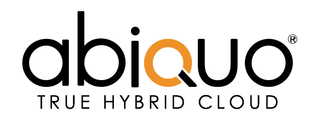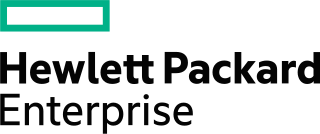NetApp, Inc. is an American data infrastructure company that provides unified data storage, integrated data services, and cloud operations (CloudOps) solutions to enterprise customers. The company is based in San Jose, California. It has ranked in the Fortune 500 from 2012 to 2021. Founded in 1992 with an initial public offering in 1995, NetApp offers cloud data services for management of applications and data both online and physically.

Bitnami is a library of installers or software packages for web applications and software stacks as well as virtual appliances. Bitnami is sponsored by Bitrock, a company founded in 2003 in Seville, Spain by Daniel Lopez Ridruejo and Erica Brescia. Bitnami stacks are used for installing software on Linux, Windows, macOS and Solaris. VMware acquired Bitrock, along with its two largest properties, Bitnami and InstallBuilder, on May 15, 2019.

OpenStack is a free, open standard cloud computing platform. It is mostly deployed as infrastructure-as-a-service (IaaS) in both public and private clouds where virtual servers and other resources are made available to users. The software platform consists of interrelated components that control diverse, multi-vendor hardware pools of processing, storage, and networking resources throughout a data center. Users manage it either through a web-based dashboard, through command-line tools, or through RESTful web services.

OpenNebula is an open source cloud computing platform for managing heterogeneous data center, public cloud and edge computing infrastructure resources. OpenNebula manages on-premises and remote virtual infrastructure to build private, public, or hybrid implementations of Infrastructure as a Service and multi-tenant Kubernetes deployments. The two primary uses of the OpenNebula platform are data center virtualization and cloud deployments based on the KVM hypervisor, LXD/LXC system containers, and AWS Firecracker microVMs. The platform is also capable of offering the cloud infrastructure necessary to operate a cloud on top of existing VMware infrastructure. In early June 2020, OpenNebula announced the release of a new Enterprise Edition for corporate users, along with a Community Edition. OpenNebula CE is free and open-source software, released under the Apache License version 2. OpenNebula CE comes with free access to patch releases containing critical bug fixes but with no access to the regular EE maintenance releases. Upgrades to the latest minor/major version is only available for CE users with non-commercial deployments or with significant open source contributions to the OpenNebula Community. OpenNebula EE is distributed under a closed-source license and requires a commercial Subscription.
Salt is a Python-based, open-source software for event-driven IT automation, remote task execution, and configuration management. Supporting the "infrastructure as code" approach to data center system and network deployment and management, configuration automation, SecOps orchestration, vulnerability remediation, and hybrid cloud control.

OpenShift is a family of containerization software products developed by Red Hat. Its flagship product is the OpenShift Container Platform — a hybrid cloud platform as a service built around Linux containers orchestrated and managed by Kubernetes on a foundation of Red Hat Enterprise Linux. The family's other products provide this platform through different environments: OKD serves as the community-driven upstream, Several deployment methods are available including self-managed, cloud native under ROSA, ARO and RHOIC on AWS, Azure, and IBM Cloud respectively, OpenShift Online as software as a service, and OpenShift Dedicated as a managed service.
HP CloudSystem is a cloud infrastructure from Hewlett Packard Enterprise (HPE) that combines storage, servers, networking and software.

Abiquo Hybrid Cloud Management Platform is a web-based cloud computing software platform developed by Abiquo. Written entirely in Java, it is used to build, integrate and manage public and private clouds in homogeneous environments. Users can deploy and manage servers, storage system and network and virtual devices. It also supports LDAP integration.
openQRM is a free and open-source cloud-computing management platform for managing heterogeneous data centre infrastructures.
Veeam Software is a privately held US-based information technology company owned by Insight Partners. It develops backup, disaster recovery and modern data protection software for virtual, cloud-native, SaaS, Kubernetes and physical workloads. Veeam Software was co-founded by two Russian entrepreneurs, Ratmir Timashev and Andrei Baronov. While Veeam's start was built on protecting data across virtualized workloads, it has significantly expanded to protect data across a wide variety of platforms from AWS, Azure, Google Cloud, Microsoft 365, Kubernetes, etc. Veeam's current CEO, Anand Eswaran, has been pushing Veeam's strategy to accelerate share in the enterprise with adding several layers to Veeam's partnerships. Veeam took over the #1 market share in the data protection category in the second half of 2022. The company headquarters is in Kirkland, Washington, United States.

HPE Helion was Hewlett-Packard's portfolio of open-source software and integrated systems for enterprise cloud computing. It was announced by HPE Cloud in May 2014. HPE Helion grew from under US$300 million to over US$3 billion by 2016. HP closed the public cloud business on 31 January 2016. HP has hybrid cloud and other offerings but the Helion public cloud offering was shut down.

Mirantis Inc. is a Campbell, California, based B2B open source cloud computing software and services company. Its primary container and cloud management products, part of the Mirantis Cloud Native Platform suite of products, are Mirantis Container Cloud and Mirantis Kubernetes Engine. The company focuses on the development and support of container and cloud infrastructure management platforms based on Kubernetes and OpenStack. The company was founded in 1999 by Alex Freedland and Boris Renski. It was one of the founding members of the OpenStack Foundation, a non-profit corporate entity established in September, 2012 to promote OpenStack software and its community. Mirantis has been an active member of the Cloud Native Computing Foundation since 2016.

BOSH is an open-source software project that offers a toolchain for release engineering, software deployment and application lifecycle management of large-scale distributed services. The toolchain is made up of a server and a command line tool. BOSH is typically used to package, deploy and manage cloud software. While BOSH was initially developed by VMware in 2010 to deploy Cloud Foundry PaaS, it can be used to deploy other software. BOSH is designed to manage the whole lifecycle of large distributed systems.
PerfKit Benchmarker is an open source benchmarking tool used to measure and compare cloud offerings. PerfKit Benchmarker is licensed under the Apache 2 license terms. PerfKit Benchmarker is a community effort involving over 500 participants including researchers, academic institutions and companies together with the originator, Google.

Dell Technologies PowerFlex, is a commercial software-defined storage product from Dell Technologies that creates a server-based storage area network (SAN) from local server storage using x86 servers. It converts this direct-attached storage into shared block storage that runs over an IP-based network.
Avi Networks is a company that provides software for the delivery of enterprise applications in data centers and clouds. Acquired by VMware in 2019, Avi Networks provides application services including local and global load balancing, application acceleration, security, application visibility, performance monitoring, service discovery, and container networking services. The company is headquartered in Santa Clara, California and has R&D, support, engineering, and sales offices in Europe and Asia.

MSP360, formerly CloudBerry Lab, is a software and application service provider company that develops online backup, remote desktop and file management products integrated with more than 20 cloud storage providers.

Qstack is a cloud management platform developed by GreenQloud, a cloud computing software company founded in Reykjavik, Iceland in February 2010. Qstack enables its users to manage multiple clouds and hybrid deployments through a single self-service portal.
Datera was a global enterprise software company headquartered in Santa Clara, California that developed an enterprise software-defined storage platform. Datera was acquired by VMware in April 2021.
Harvester is a cloud native hyper-converged infrastructure (HCI) open source software. Harvester was announced in 2020 by SUSE.











